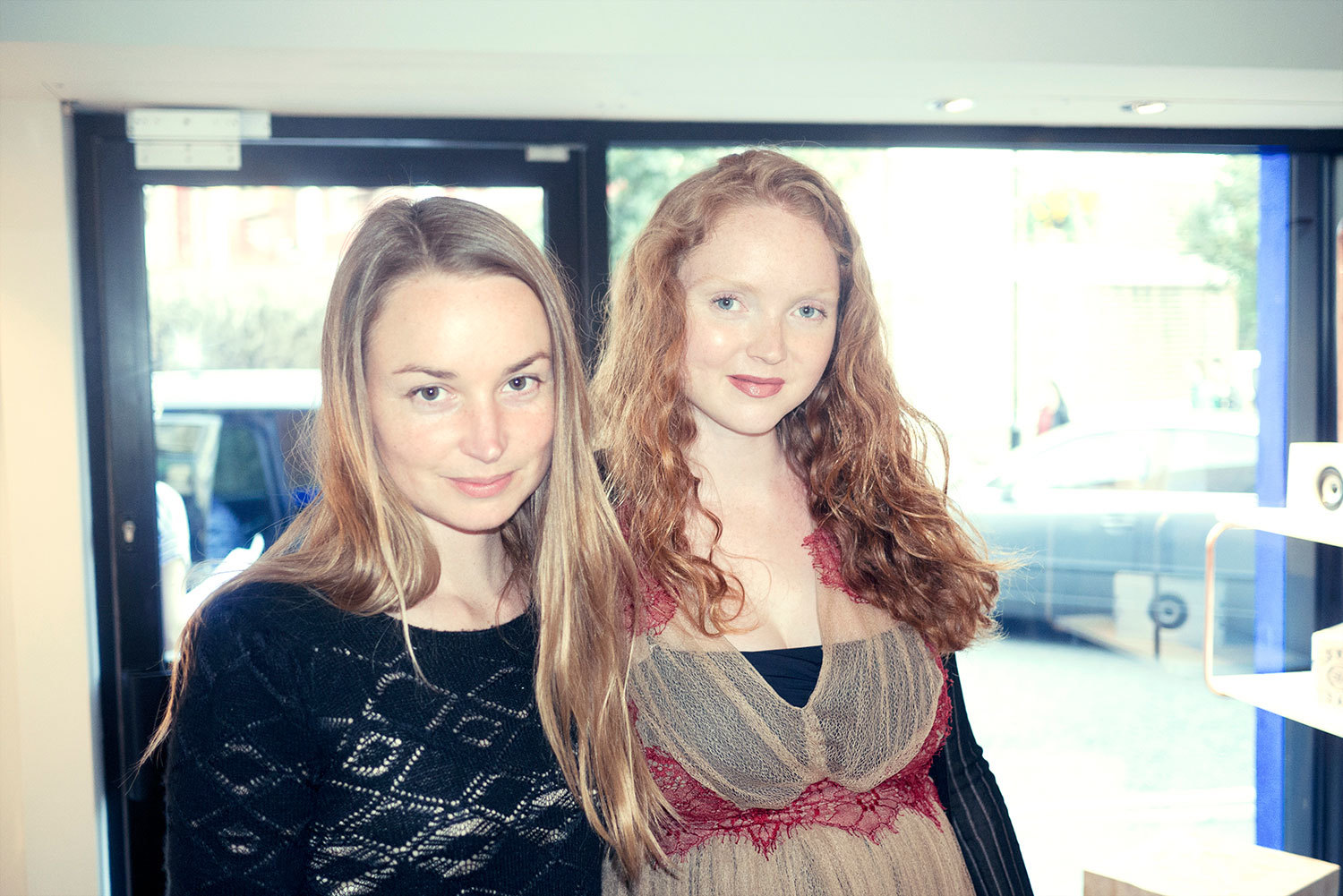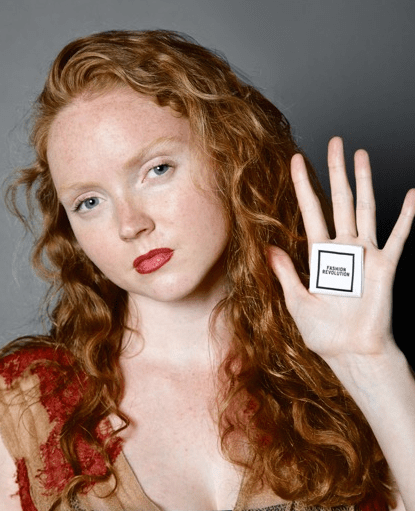Since she brought supernature to the Tim Walker-shot cover of i-D back in 2006, Lily Cole has never stopped impressing us. With a double first in History of Art from Cambridge under her belt, the 27-year-old model and actress has become an ambassador for a whole host of charities, set up environmentally friendly knitwear company The North Circular, was hailed as one of PETA’s ‘sexiest vegetarians’ and was awarded an honorary doctorate by Glasgow Caledonian University for her outstanding contribution to humanitarian and environmental causes. Having written a book on the concept of impossible utopias, the British beauty recently founded impossible.com; a global community that facilitates a gift economy by encouraging people to share their time, skills and objects in order to make the world a better place. Alongside the online network, Lily has opened an impossible shop in South London and is currently expecting her first child with Kwame Ferreira, who runs the project with her. In honor of Fashion Revolution Day – a date that marks the second anniversary of the Rana Plaza factory disaster in Bangladesh – Lily is teaming up with Futerra to host a clothes swapping event tonight in London. Follow Lily’s lead and make a change!

Do you believe it’s possible for the world to reach a utopian state?
No, I don’t believe in utopia as a destination or fixed state. In my thesis I write about utopia as an ever-present possible state of being, which anyone can access. It comes from the Greek for “no-place” so cannot be fixed in time or space.
Word on the street (internet) is that you went to Burning Man to experience its gift economy. Do you think it is feasible to work it into our modern lives?
I first came into contact with the gift economy through books (and life experience) and then only went to Burning Man just before launching impossible.com to experience their version of it. The British government estimate that the amount of things people do for one another for free in the UK is bigger than the GDP so I believe it’s already a big part of our culture, and I think it’s even more evident in smaller, more interdependent communities – often in the developing world. I definitely think a balance can be sought and found between living transactional monetary relationships, and doing things for non-monetary reasons, and I think it’s important we strive to find that balance.
Impossible.com encourages people to share what they have with others. Of all the skills that you possess, which are your favorite three?
Listening / advice: I love giving people advice, sharing my experience, knowledge and understanding when asked.
Photography: I love filming, stills or moving images, and dissolving into visual creativity.
Writing: I enjoy playing with language and writing. I find it a very effective mode of communication.
And which skills do you wish you had?
Languages: I would love to speak more languages.
Playing piano: something someone on impossible is teaching me right now actually!
Coding: I don’t really want to learn but it would be very handy to know!
You’re having an impossible baby! Congratulations! Has being pregnant changed how you view the world at all?
It has made me slow down a bit, and start to consider how to prioritize my different work commitments, and what my work/life balance is like…
Is your impossible shop just for buying or will impossible activities take place there too?
We are using the space for events too! The shop is situated alongside a wonderful co-working space at The Glasshouse which we have already done a couple of impossible meet ups in, and we have more workshops planned. Some of the workshops will be connected to the products in the store (i.e. learning how to bake furniture or knit items) and others will be more random (i.e. how to film with Super8!)

What difficulties, if any, have you encountered on the journey so far?
It is a constant learning process, full of challenges – social, technical, financial – but that is the process.
How far do you hope to take the project?
I hope we can make it sustainable so that it can grow and evolve organically for a very long time.
Whose activism do you currently admire?
Sir David Attenborough.
Tell us a little about your involvement in Fashion Revolution Day this Friday…
We have just launched a shop on impossible.com selling products with responsible and transparent supply chains. Looking to improve and make the manufacturing in fashion (and other industries) more open and fair is very important to me, and so I applaud everyone -including FRD- who is trying to fight that corner also. On Friday, to remember the victims of the Rana Plaza tragedy and what their story may teach us, Impossible will be co-hosting a clothes swapping event in London asking people to push against the idea of fast disposable fashion.
What’s the best piece of advice you’ve ever received?
Live in the present. Easier said than done sometimes!
How can we all make the world a better place?
All change begins with ourselves.
Credits
Text Francesca Dunn
Photography Tim Walker
Fashion Director Edward Enninful
Vest by Strenesse
[The Scratch & Sniff Issue, No. 266, May 2006]
Event photography Flo Kohl
